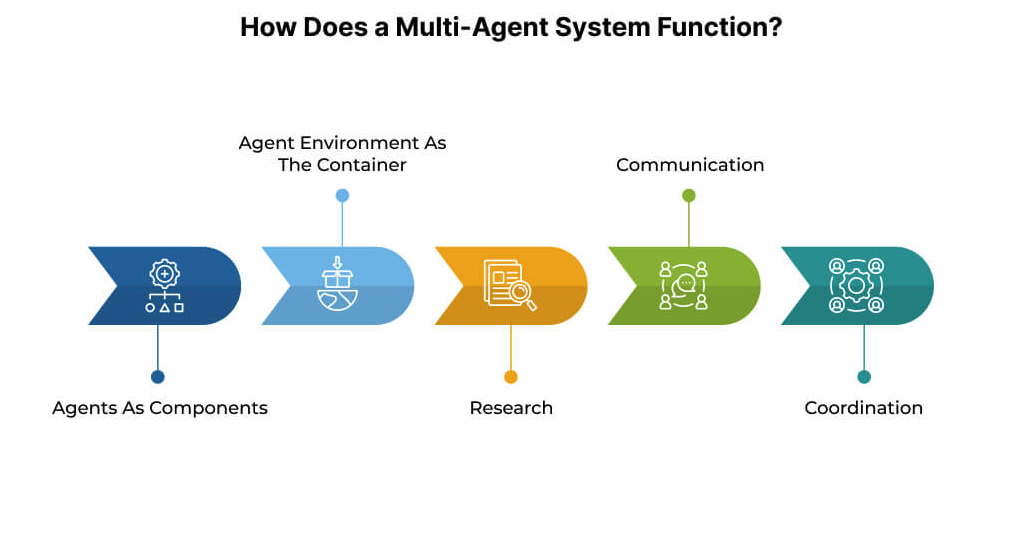Types of Multi-Agent Systems: Artificial Intelligence for Business
What is an Intelligent Agent?
An intelligent agent is a computer program that performs a specific task autonomously, without the need for constant supervision. For example, an intelligent agent can be responsible for monitoring a store’s inventory and automatically placing orders when products are running low.
What is a Multi-Agent System?
A multi-agent system is a set of several intelligent agents that work together and communicate with each other to perform more complex tasks efficiently. It is like a team of virtual assistants, each with a specific function, collaborating to optimize processes within a business.

Types of Multi-Agent Applications in the Business Environment
Multi-agent systems can be applied in various areas within a company to improve efficiency and optimize resources. Below are some key applications:
Supply Chain Management
Inventory Agent: Controls stock levels and places automatic orders.
- If a product is running low, this agent places a purchase order to restock it without human intervention.
Logistics Agent: Plans delivery routes and coordinates transportation.
- It analyzes real-time traffic and adjusts the route to avoid delays.
Supplier Agent: Manages relationships with suppliers and negotiates contracts.
- It evaluates supplier performance and seeks better prices and purchasing terms.
Customer Service
Support Agent: Answers questions and provides technical assistance.
- Customers receive automated help with detailed instructions.
Sales Agent: Recommends products and personalizes offers based on customer behavior.
- If a customer purchases a product or service, the agent suggests complementary items.
Marketing Agent: Analyzes data and plans advertising campaigns.
- It detects trends and adjusts marketing strategies.
Internal Process Optimization
Productivity Agent: Identifies workflow problems and suggests improvements.
- It detects production delays and proposes solutions.
Finance Agent: Automates accounting and billing processes.
- It processes invoices and reconciles bank accounts automatically.
Security Agent: Protects the company against digital threats.
- It detects unauthorized access attempts and blocks potential attacks.
Implementing a multi-agent system can give businesses a significant competitive advantage. It not only optimizes operational efficiency but also improves customer service quality and allows better adaptation to market changes.
